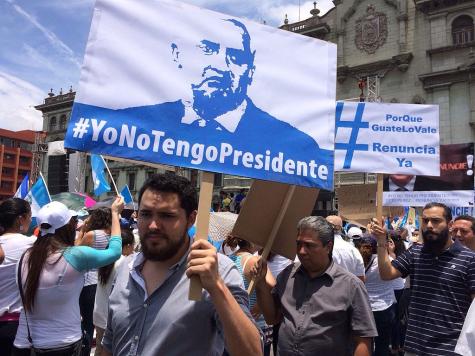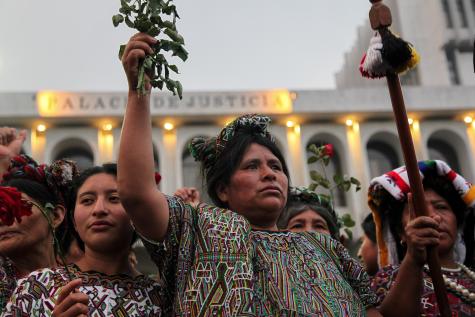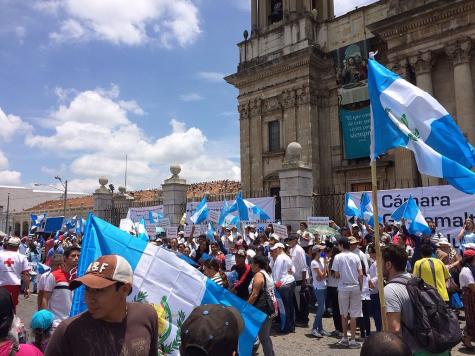Guatemala - Politics

Guide to Politics in Guatemala – Decades of Corruption and Inequality
This comprehensive ➡️ platform on Guatemalan politics features over 800 resources on presidential elections, important political issues, political parties, and key politicians.
Guatemala is the most populated country in Central America. It is a country with a high proportion of young people and boasts one of the largest indigenous populations in the world. The country is marred with gaping inequalities, and since gaining independence in 1821 has largely operated under authoritarian governance. A history of military rule, civil war, and tumultuous democracy has left the majority excluded, and continues to prop up the minority elite.
1996 marked the end of 36 years of violent armed conflict which left the nation socially, psychologically, economically, and culturally scarred. In what was labelled by international bodies as genocide of the Mayan people, even almost 30 years after the end of the conflict the same issues persist.

Guatemala's fight against corruption is well documented. Various political crises have centred around high level corruption in the department of justice, low taxes, racial discrimination, poverty, exclusion, and a general disregard for the Guatemalan people and their fundamental human rights.
The very structures in place to protect the people are compromised, acting with complete impunity. In recent years, campaigns against anti-corruption efforts have intensified. In 2007, the United Nations formed what was known as the International Commission Against Impunity in Guatemala – CICIG.
Acting as an independent anti-corruption body, their achievements were impressive. The well-known case of La Línea was successful in accusing politicians of receiving huge kickbacks of almost $40 million for turning a blind eye to customs smuggling. Large scale demonstrations ensued and ultimately led to the resignation of Molina and his vice-president Baldetti.
Later in 2018, President Jimmy Morales, whose campaign slogan labelled him “neither corrupt nor a thief”, closed the CICIG after they began an investigation into his family. Corruption and impunity now continue to loom over the country preventing real social and economic progress.
Attacks on human rights defenders and trade unionists are also commonplace. This coupled with the closure of the CICIG, has left Guatemalans largely voiceless and repressed.

Attempted Coup and Nationwide Peaceful Protests 2023
The current political crisis and protests began during the 2023 Presidential election where the now President-elect Bernardo Arévalo and his Movimiento Semilla party (the Seed Movement) won with 61% of the vote. His anti-corruption campaign was for obvious reasons very attractive to voters.
When it became clear that Arévalo was to be the front runner, Attorney General María Consuelo Porras and her office commenced an investigation into his party claiming that the original signatures to form his party were fraudulent. Porras has already been sanctioned by the U.S. government for her involvement in corruption and repeatedly obstructing anticorruption investigations.
Frustrated communities took matters into their own hands after the country’s highest court upheld a move to suspend Arévalo’s party with many labelling it an attempted coup d'état. Citizens are demanding the resignation of Porras and the other prosecutors through a series of nationwide roadblocks and prodemocracy protests which have crippled the country.
Could Guatemala be the country which sparks a revolution in Latin America, a region which has long suffered under the grips of corruption, greed, and impunity? We must continue to raise awareness of injustices, inequalities, and antidemocratic leadership.
Better World Info supports the collective fight for democracy, transparency, and social progression across the world. Together we can make a difference.
Author: Rachael Mellor, 19.03.23 licensed under CC BY-ND 4.0
For further reading on Guatemalan Politics see below ⬇️